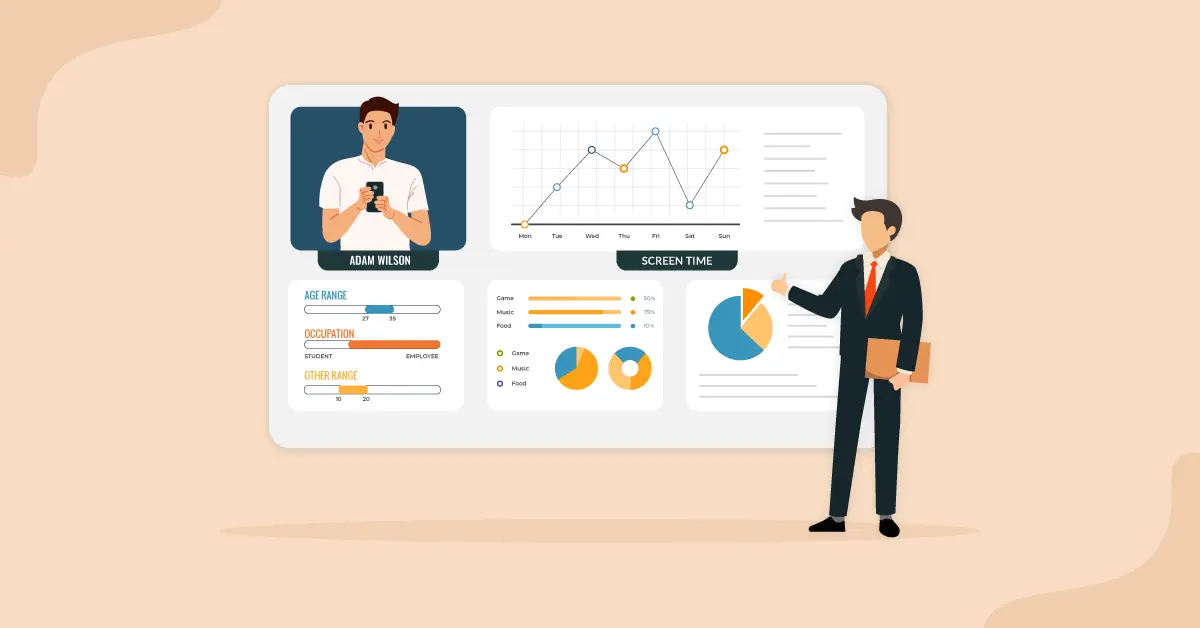
Employee tracking has evolved significantly over the years, and today, Artificial Intelligence (AI) is transforming how organizations monitor and measure performance. Gone are the days of manual assessments or simple time-tracking tools. AI offers advanced metrics that provide deeper insights into employee productivity, engagement, and overall efficiency. But why should businesses take these AI-driven metrics seriously? Let’s explore the key reasons.
Why AI Employee Tracking Metrics Should Be Taken Into Account
1. Accurate and Real-Time Data
AI-powered employee tracking tools provide real-time data that is far more accurate than traditional methods. For example, AI can analyze task completion rates, communication patterns, and even behavioral trends. This helps managers make informed decisions on the spot rather than relying on outdated or incomplete reports.
Example:
If an employee’s productivity dips suddenly, AI tools can quickly identify the cause, such as excessive meetings or unclear task assignments. Managers can then intervene promptly to address the issue. What is the best employee tracking software to do the work? Controlio is an AI-powered advanced monitoring tool.
2. Enhanced Employee Performance Analysis
AI doesn’t just track hours worked—it evaluates outcomes. It considers metrics like quality of work, time spent on tasks, and collaboration efficiency. This shifts the focus from mere “busy work” to meaningful contributions.
Why It Matters:
Traditional metrics often fail to capture the nuances of an employee’s performance. AI tools, on the other hand, provide a holistic view that helps organizations recognize high performers and identify areas for improvement.
3. Improved Employee Engagement
One might think that employee tracking could feel intrusive, but AI can actually enhance engagement when implemented thoughtfully. For instance, AI tools can identify workload imbalances and suggest adjustments to prevent burnout.
Real-Life Impact:
Companies using AI tracking have reported higher satisfaction levels among employees because their workloads are optimized. Employees feel valued when their challenges are acknowledged and addressed proactively.
4. Personalized Development Plans
AI tracking doesn’t just evaluate performance; it helps in crafting personalized growth plans. By analyzing skill gaps and learning curves, AI can recommend training programs, workshops, or mentorship opportunities for employees.
Benefits:
Tailored development plans not only boost employee morale but also enhance overall organizational performance. When employees grow, so does the company.
5. Reduced Bias in Evaluations
Human assessments can sometimes be biased, whether intentionally or unintentionally. AI, however, evaluates data objectively. Metrics like task completion rates, collaboration frequency, and feedback cycles are analyzed without preconceived notions, ensuring fair evaluations.
Why It’s Crucial:
Fair and unbiased evaluations improve trust between employees and management, fostering a positive work environment.
6. Cost and Time Efficiency
Manual tracking methods are often time-consuming and error-prone. AI automates these processes, saving both time and money. Managers can focus on strategic tasks rather than spending hours compiling reports.
Bottom Line:
AI-driven tools streamline operations, making organizations more agile and efficient.
7. Future-Proofing the Workforce
As workplaces become more digitized, AI tracking metrics align with future trends. Organizations that adopt these tools early on gain a competitive edge by staying ahead of technological advancements.
Long-Term Perspective:
AI helps companies adapt to evolving business needs, ensuring their workforce remains skilled, efficient, and competitive.
Challenges to Consider
While AI tracking metrics offer numerous benefits, it’s essential to implement them ethically. Transparency is key. Employees should be informed about what is being tracked and why. Additionally, data security must be prioritized to protect sensitive information.
Tip:
Involve employees in the decision-making process when introducing AI tracking tools. Their buy-in can make a big difference in the successful adoption of these systems.
AI employee tracking metrics are more than just numbers on a screen. They provide actionable insights that can transform how businesses operate. From improving performance and engagement to reducing bias and future-proofing the workforce, the benefits are undeniable. However, ethical implementation and transparency are crucial to ensuring that these tools are used effectively and responsibly.






